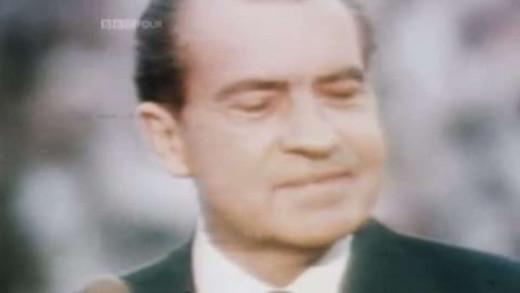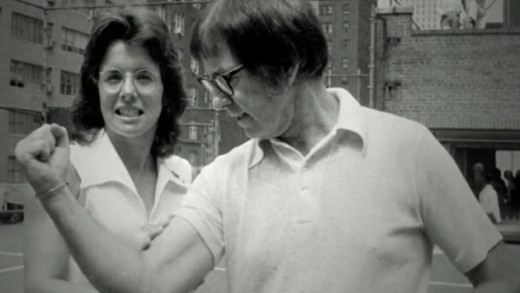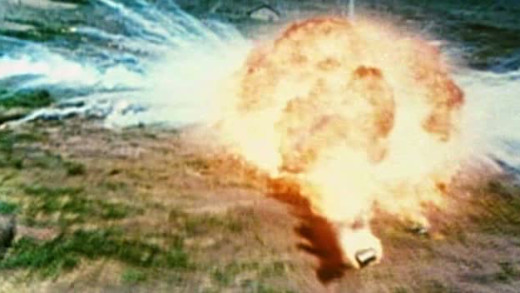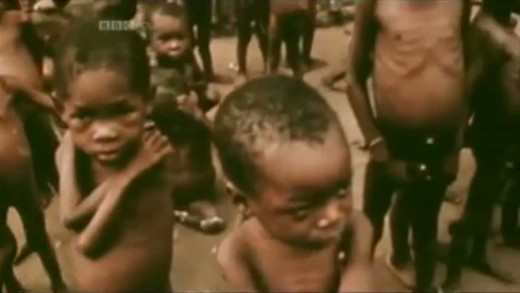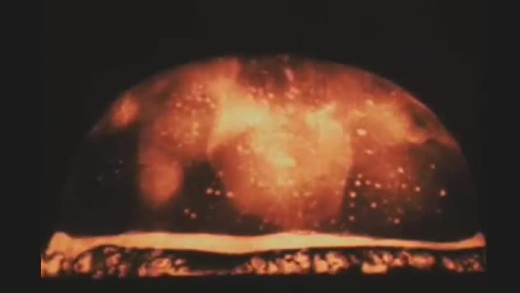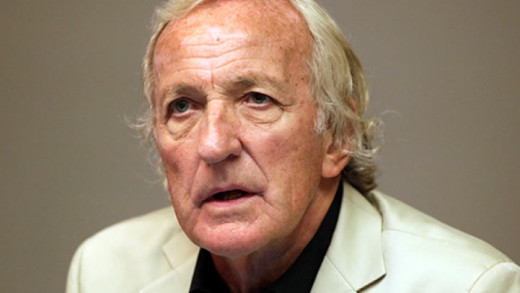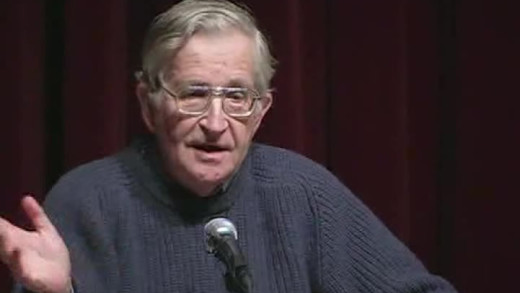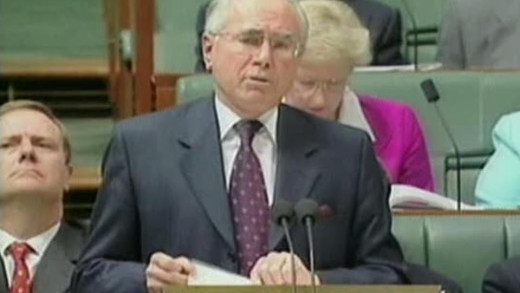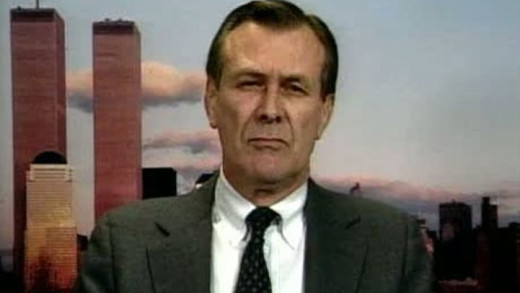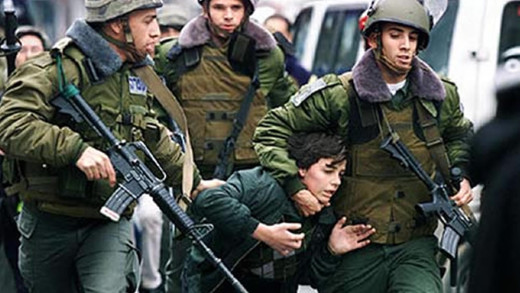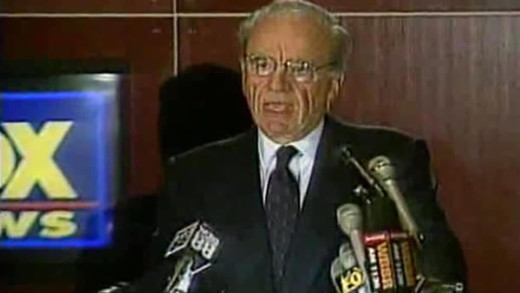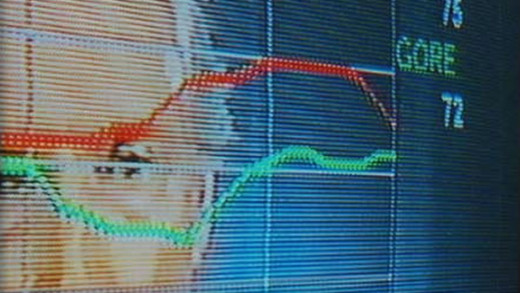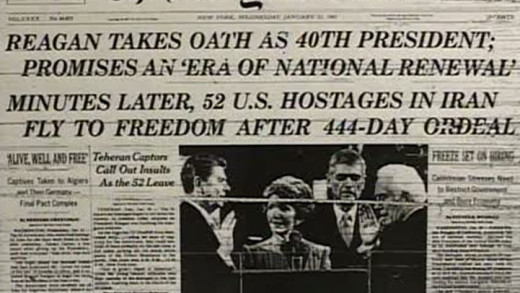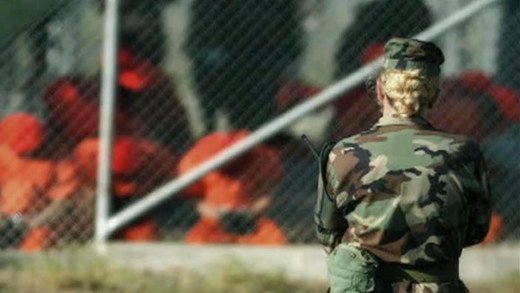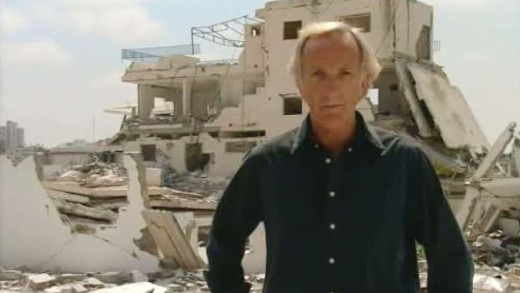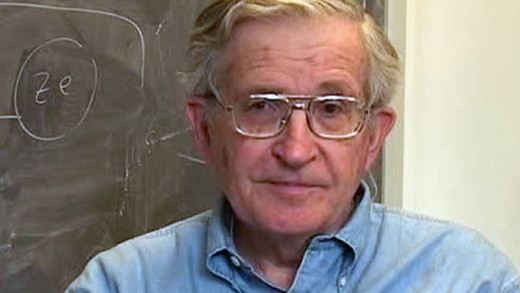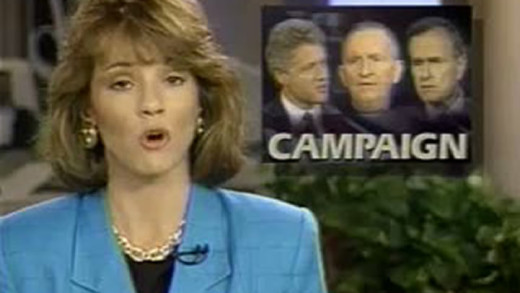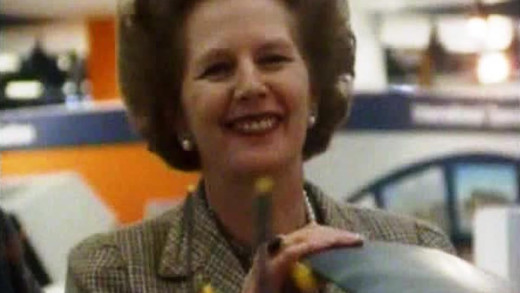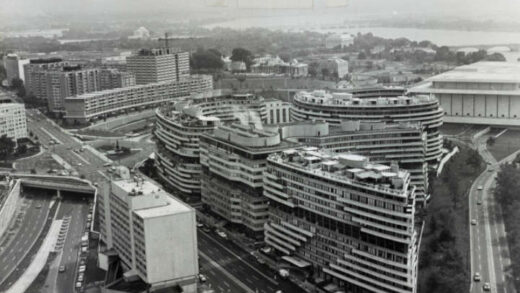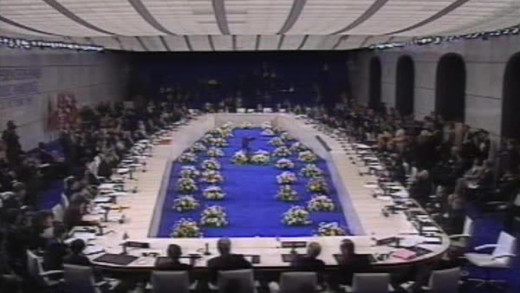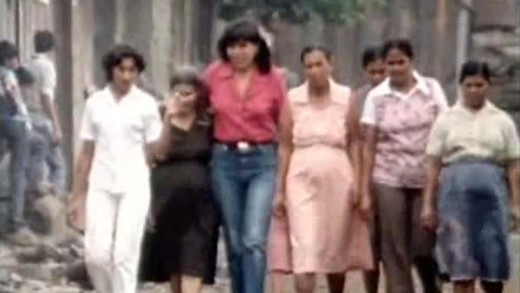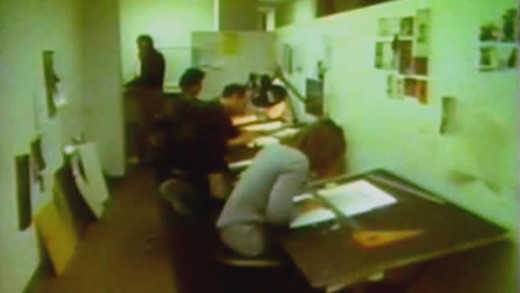This short film uses the story of Richard Nixon's paranoia to explore how a similar outlook has been perpetuated on the larger social scale by the new media age. Skimming through the evolution of the mainstream media via television and newspapers, this short film comments on how politics has been paralysed by a media that has taken serious threats and sensationalised them, resulting in political cynicism and disengagement, which in-turn feeds a viscous cycle of nihilism and further sensationalist politics and media.
We've been told again and again that sports and politics don't mix, that games are just games and athletes should just "shut up and play." But Not Just a Game argues that far from providing merely escapist entertainment, American sports have long been at the centre of some of the major political debates and struggles of our time. By tracing the good, the bad, and the ugly of American sports culture, Not Just a Game shows how American sports have glamorised militarism, racism, sexism, and homophobia; but also traces a largely forgotten history of rebel athletes who stood up to power and fought for social justice beyond the field of play.
The War You Don't See traces the history of 'embedded' and independent reporting from the carnage of World War One to the destruction of Hiroshima, and from the invasion of Vietnam to the current war in Afghanistan and disaster in Iraq. As weapons and propaganda become even more sophisticated, the nature of war is developing into an 'electronic battlefield' in which journalists play a key role, and civilians are the victims. But who is the real enemy?
Based on the immersive theatre production and experimental work by Adam Curtis, It Felt Like A Kiss is a visual exploration of the story of an enchanted world that was built by the rise of the United States as supreme power after the Second World War, and how those living in that dream world responded to this. Using extensive archive footage from throughout the 1960s, this experimental film sets out to explore the themes and consequences of how power really works in the world since the beginning of the post-world-war era, and how the perspective of the way society is organised since that time is a political product of the ideas of that time.
Oh Dearism
As the mainstream media attempts to create a simple narrative from hugely complex events, much is obviously lost in the translation—most often purposefully. This short film attempts to contrast the character of this narrative in the 1990s, where events were almost universally portrayed as 'the little guy versus the big guy' to the post Rwanda narrative of 'scattered terrible things happening everywhere, Oh Dear.' It is not that we can't actually do anything about these events, it is only that mainstream media presents these events within a framework that makes it seem that way and that in itself is a very powerful way to control society.
Golden Rule presents a picture of today's political economy interpreted through the framework of the "Investment Theory of political Parties". The theory, first articulated in 1983 by Thomas Ferguson, is largely based on quantitative analysis of activity in the stock market and its relationship to politics--that is to say that "elections are moments when groups of investors coalesce and invest to control the state." The film takes this theory and tests it against developments in the political and social spheres of recent decades, right up to the election of Barack Obama in the United States in 2008...
Renowned independent journalist John Pilger speaks about complicity and compliance, censorship and citizen journalism as well as issues such as the holocaust in Iraq and Kevin Rudd's shrewd political apology to the Indigenous peoples of Australia as Prime Minister. "These days, a one-dimensional political culture ensures that few writers write, or speak out, as they did in the last century. They are talented, yet safe. In the media, the more people watch, the less people know. Beneath the smokescreen of objectivity and impartiality, media establishments too often ventriloquise the official line, falling silent at the sight of unpleasant truths."
In Imperial Grand Strategy renowned linguist and philosopher Noam Chomsky focuses on the issue of the invasion of Iraq, and cuts through the ideological fog that surrounds the invasion and occupation, laying waste to the US government's justifications for them. In the process, Chomsky uncovers the real motivations behind US military aggression: a global imperial plan put in place long before Iraq and that will extend far into the future, unless we do something about it.
In March 2003 thousands of Australian troops and others were sent to fight a 'war' as part of a pre-emptive strike on the sovereign nation of Iraq, a country from whom there was no threat. Two years on, in the wake of hundreds of thousands of Iraqi casualties, the Australian military reports its first casualty in the conflict while the American death toll stands at nearly two thousand. This being the a result of an invasion which has all but destroyed a foreign nation and seen millions made homeless, families destroyed, hundreds of thousands of deaths, leaving a legacy of destruction and religious division instilled in its wake. How did the Australian government come to play a part in this terror?
Is the threat of radical Islamism as a massive, sinister organised force of destruction—specifically in the form of al-Qaeda—a myth perpetrated by politicians across the globe, but particularly the American neo-conservatives, in order to unite and justify empire? This series of films charts the rise of both groups and movements, drawing comparisons between them and their origins, to provide much-needed and missing context to the War of Terror.
By providing a striking comparison of U.S. and international media coverage of the crisis in the Middle East, Peace, Propaganda and The Promised Land zeros in on how structural distortions in U.S. media coverage have reinforced false perceptions of the Israeli-Palestinian conflict and how, through the use of language, framing and the context of the Israeli occupation of the West Bank and Gaza remains hidden in the news media...
The global growth of Rupert Murdoch's media enterprise is cause for concern. The concentration of media ownership on a global scale in the hands of one man infringes on the freedom of the press by definition at the very least. But the real life example here is Fox News and it's own claim of being "Fair and Balanced" -- one only has to look at the coverage of the invasion of Iraq for example, or "commentators" such as Bill O'Reilly or Sean Hannity and the interactions they have with their "guests"; the vast political connections between Fox News, the Whitehouse and the Pentagon propaganda unit; the suppressed news stories, the censorship, the manipulation and control over the "news" by Murdoch and the president Roger Ailes themselves, not to mention the control over reporters, with former journalists alleging that Fox News asked them to lie and when they refused they were fired. Even lawsuits entailed from this with the court ruling that it is not against the law to lie on a news program...
Each year, legions of ad people, copywriters, market researchers, pollsters, consultants, and even linguists spend billions of dollars and millions of hours trying to determine how to persuade consumers what to buy, whom to trust, and what to think. Increasingly, these techniques are migrating to the high-stakes arena of politics, shaping policy and influencing how Americans choose their leaders. In The Persuaders, renowned media scholar Douglas Rushkoff explores how the cultures of marketing and advertising have come to influence not only what we buy, but also how we view ourselves and the world around us. The Persuaders draws on a range of experts and observers of the advertising and marketing world, to examine how, in the words of one on-camera commentator, “the principal of democracy yields to the practice of demography,” as highly customised messages are targeted to individuals using technology and fine-tuned social engineering techniques.
Could a media system, controlled by a few global corporations with the ability to overwhelm all competing voices, be able to turn lies into truth? This documentary examines the relationship between the media, corporations, and government. In a country where the top 1% control 90% of the wealth, the film argues that the media system is nothing but a subsidiary of the corporate world. Have we entered an Orwellian world of doublespeak where outright lies can pass for the truth?
The discrepancies between the "War on Terror" and the facts on the ground in Afghanistan and Iraq are many. In 2001, as the bombs began to drop, George W. Bush promised Afghanistan, "the generosity of America and its allies." Now, the familiar old warlords are retaining their power, religious fundamentalism is expanding its grip and military 'skirmishes' continue routinely. In "liberated" Afghanistan, America has its military base and pipeline access, while the people have the warlords who are, as one woman says in the film, "in many ways worse than the Taliban."
John Pilger returns to the Occupied Territories of the West Bank and Gaza where, in 1974, he filmed a documentary with the same title -- Palestine Is Still The Issue -- a film about the same issues, a nation of people, the Palestinians, forced off their land and subjected to military occupation by Israel. Pilger hears extraordinary stories from Palestinians, though most of his interviews are with Israelis whose voices are seldom heard, including the remarkable witness of a man who lost his daughter in a suicide bombing. But for Palestinians, the overriding, routine terror, day after day, has been the ruthless control of almost every aspect of their lives, as if they live in an open prison. This film is about the Palestinians and a group of courageous Israelis united in the fight to be free...
In the aftermath of the events of September 11th, 2001; MIT linguist and political philosopher Noam Chomsky found himself called upon to provide much-needed analysis and historical perspective regarding this moment in American history. In the months following, Chomsky gave dozens of talks on four continents, conducted scores of media interviews, and published a book called '9-11.' In this film and in his book, Chomsky places the events of September 11 in the context of American foreign intervention throughout the postwar decades—in Vietnam, Central America, the Middle East, and elsewhere. Beginning with the fundamental principle that any exercise of violence against civilian populations is terrorism—regardless of whether the perpetrator is a well-organized band of Muslim extremists or the most powerful nation-state in the world—Chomsky challenges the United States to apply the moral standards it demands of others to its own actions.
To many in both business and government, the triumph of the self is the ultimate expression of democracy, where power is truly moved into the hands of the people. Certainly the people may feel they are in charge, but are they really? The Century of the Self tells the untold and controversial story of the growth of the mass-consumer society. How is the all-consuming self created, by whom, and in whose interest?
Spin
Using the 1992 presidential election as his springboard, film-maker Brian Springer captures the behind-the-scenes manoeuvrings of politicians and newscasters in the early 1990s. Pat Robertson banters about "homos," Al Gore learns how to avoid abortion questions, George Bush talks to Larry King about halcyon and other drugs—all presuming they're off-air. Composed of 100% unauthorised satellite footage, Spin is a surreal expose of media-constructed reality, posing larger questions about the functioning of not only corporate media, but the political systems in which they support and how this in-turn plays to the media-constructed reality and so on.
John Pilger and David Munro look behind political rhetoric to discover the hidden world of international arms dealing...
Watergate is a mini-series that provides insight on the presidential corruption scandal in the United States involving Richard M. Nixon through the early 1970s. The scandal eventually led to his resignation as America's president. The series is based on the book Watergate: The Corruption and Fall of Richard Nixon, by Fred Emery.
John Pilger travels to Cambodia to investigate how the United Nations has allowed the Khmer Rouge regime to grow stronger. Why has Pol Pot's organisation grown stronger and more menacing since the arrival of the UN? Cambodia -- Return To Year Zero looks behind the façade of the so-called 'peace process' and asks: Has the unthinkable for Cambodia at last been made acceptable for the rest of the world?
Pandora’s Box
Pandora's Box -- A fable from the age of science, is a six part series examining the consequences of political and technocratic rationalism, tying together communism in the Soviet Union, systems analysis and game theory during the Cold War, economy in the United Kingdom during the 1970s, the insecticide DDT, Kwame Nkrumah's leadership in Ghana during the 1950s and 1960s and the history of nuclear power.
Cambodia -- The Betrayal is the fourth follow-up to John Pilger and David Munro's series on Cambodia, the film Year Ten from 1989, which examined the hypocrisy of western geopolitics by looking at the way in which the United Nations pressured Cambodia to accept the Khmer Rouge regime as part of the United Nations peace plan.
In 1979, the people of Nicaragua successfully put an end to decades of the corrupt Somoza dictatorship whose family had been in power for more than 40 years, put there by the United States marines. Four years later, this film travels to Nicaragua to question: How can a country survive when its jungle borders hold 4000 hostile troops?
Street of Joy
Street Of Joy looks at how product marketing methods and advertising techniques are applied to politics by specifically following the campaigns around the election of Jimmy Carter in the United States during 1976. In these times, the techniques of today are seen in their early years, especially the use of carefully crafted images for use on television...
In Australia
In Australia takes a candid look at the highs and lows of Australian society, circa 1976. The film ties together the workings of media manipulation in its early days, along with the removal of Prime Minister Gough Whitlam by Governor-General coup d'état—Kerr's Cur—to demonstrate the common apathetic side of popular culture in the 'lucky country.' The film also touches on the subtlety of remnant class structures remaining from English heritage by revealing the workings of the 'Occa'—a prudish stereotype of the common person portrayed and exploited by mainstream media, revealing views on immigration and racism in a country, ironically, colonised by immigrants.
Underground is a film about the Weather Underground Organisation—a group founded as a militant faction of the civil rights and anti-war movement of the 1960s and 1970s. The film combines interviews with members of the group after they went underground who explain how they became radicalised amongst the political happenings in the United States at the time, as well as the revolutionary struggles in Cuba, Russia and China, and the history of struggles over Native American rights and labour issues. Also detailed is the group's analysis of American society, addressing those who have inspired them, and further explaining the reasons behind their militancy, while also introducing the issue of tactics. We see the use of property destruction as a way to bring about change and destabilise the current political order. Underground takes an intimate look at the inner workings of the Weather Underground and their strong internal collective identity, providing a record of how a bunch of middle-class Americans became self-styled militant revolutionaries, raising questions not only about the merits of their struggle, but also about past and future radical actions.
